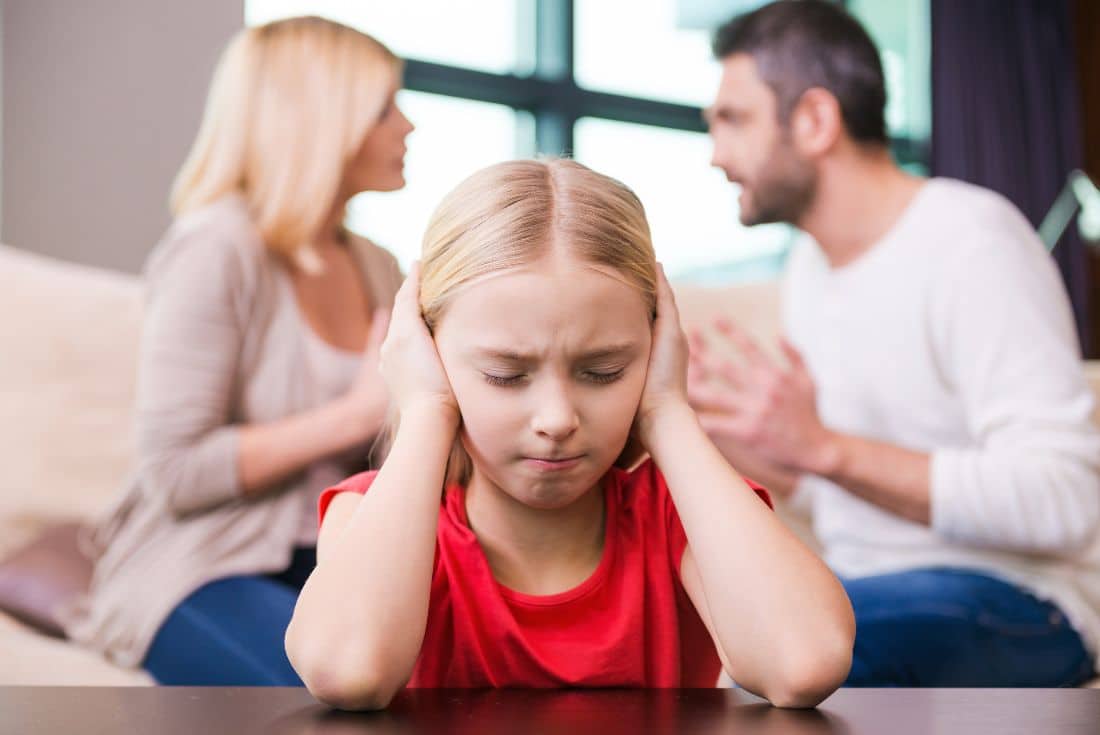
22 Jul 5 Signs of Emotional Distress in Children of Divorce
When you think of divorce, you likely think about the two adults going through the process. What many people forget is that children are often in the crossfires of divorce. This seismic shift in the family dynamic can often leave deep emotional imprints on children. Understanding the signs of emotional distress in children of divorce can help you foster an environment of healing so that you can provide the help your child needs and deserves.
Changes in Behavior and Outbursts
Children often lack the verbal or emotional maturity to communicate their feelings directly. This can result in changes in their behavior, such as increased defiance, anger, or destructiveness. These emotional outbursts typically signal an internal struggle with the changes brought about by divorce.
It’s important to view these actions not as mere bad behavior but as a child’s attempt to articulate their distress. Self-help groups and professional counseling can aid children in expressing these emotions constructively.
Increased Anxiety and Worry
Your child may not always explicitly voice an increase in their anxiety. Anxiety could manifest subtly through resistance to parental transitions, separation fears, or a general uptick in worry. Anxiety in children post-divorce can be particularly concerning, as it might lead to deeper emotional struggles such as depression if left unaddressed.
Providing a nurturing environment coupled with professional care can help manage your child’s worries. Their fears might seem trivial to you, but they’re very real to your child and can be tied to the divorce’s destabilizing effects on their life.
Changes in Academic Performance
Divorce often takes a toll beyond the home, affecting a child’s academic life. A once-promising academic track may show signs of derailment, a drop in grades, or increased school-related issues. This is concerning as academic performance typically represents a child’s sense of security and normalcy in their life.
Recognizing that your child’s academic performance could be linked to emotional distress is a step toward helping them regain their footing. With a supportive restructured family dynamic and potential counseling, you can help your child succeed academically despite the trials of divorce.
Regression in Development
In some cases, children may regress to behaviors typical of a younger age group. This regression can manifest in various ways, such as bed-wetting, thumb-sucking, or needing comfort items.
While this can be distressing for parents, it is important to provide support and understanding as the child attempts to self-soothe and find security during a turbulent time.
Withdrawal and Isolation
Divorce can lead to a child’s withdrawal from social activities and friends. Isolation provides a safe retreat from the upheaval of family life.
Identifying this withdrawal and encouraging social engagement is vital to prevent long-term impacts on the child’s mental health. It’s important to create spaces for open conversation and provide outlets to reconnect with peers and family members.
The signs of emotional distress in children of divorce can be subtle yet significantly impactful on their growth and happiness. As parents, it’s essential to be attuned to these signals so that you can provide the necessary support, understanding, and resources.
Seek guidance from LaCoste Family Law’s father’s rights attorney in Washington State. We offer invaluable support to ensure your child’s best interests are at the forefront during legal proceedings. By staying informed and seeking the right support, we can make a significant difference in the lives of children navigating the emotional aftermath of divorce.

